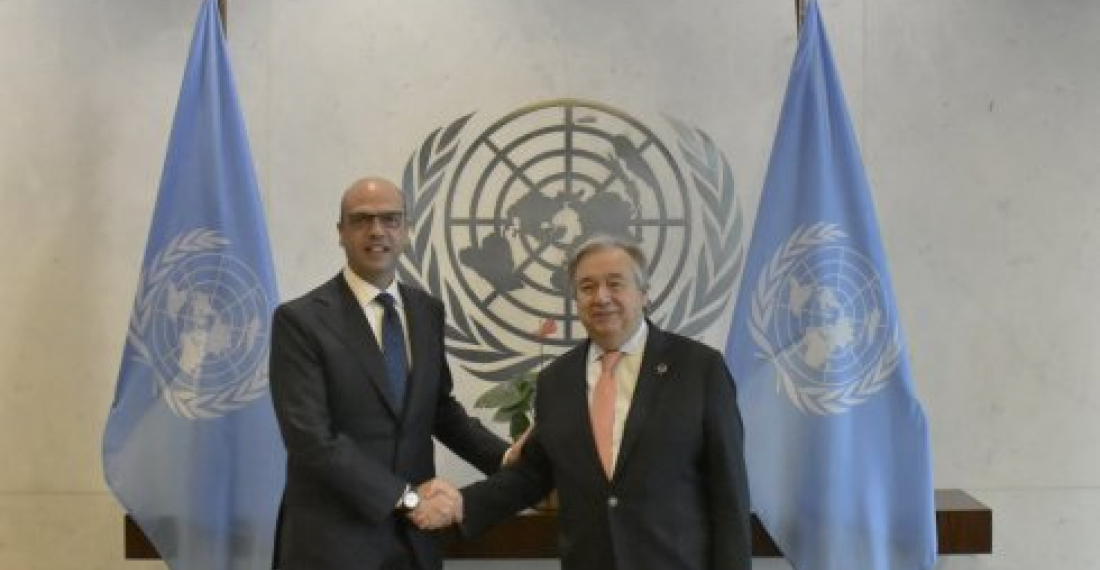Обращаясь к Совету Безопасности ООН в четверг (8 марта), министр иностранных дел Италии Анджелино Альфано, который в настоящее время является председателем Организации по безопасности и сотрудничеству в Европе (ОБСЕ), вновь заявил о приверженности Председательства постоянным усилиям по разрешению затяжных конфликтов в Карабахе и в Грузии, а также в других частях региона ОБСЕ.
Министр иностранных дел Италии в своем выступлении перед Советом Безопасности сказал, что Италия проводит более активный подход по всем трем измерениям безопасности, предусмотренным ОБСЕ, а именно в политически-военном, в экономически-экологическом и по правам человека, а также по новым транснациональным вызовам, а именно терроризм, кибербезопасность, борьба с трафикингом, включая незаконный оборот наркотиков и похищенное культурное наследие.
Ранее в четверг (8 марта) министр иностранных дел Альфано также встретился с Генеральным секретарем Организации Объединенных Наций Антонио Гуттересом.
источник: commonspace.eu по материалам веб-сайта Farnesina
фото: Министр иностранных дел Италии Анджелино Альфано на встрече с Генеральным секретарем Организации Объединенных Наций Антонио Гуттересом (фото любезно предоставлено Farnesina)







